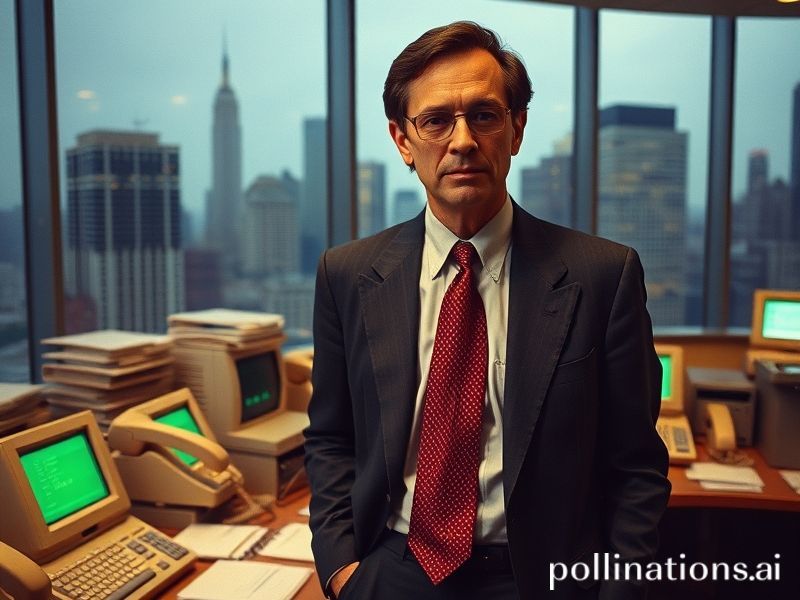The Pardonable Sin: How Michael Milken Became Capitalism’s Favorite Rebrand
From Singaporean sovereign-wealth offices to the back rooms of Banca d’Italia, the name Michael Milken still provokes the same involuntary wince usually reserved for tax audits and lukewarm prosecco. Three decades after his release from a California prison camp, the “junk-bond king” has been reborn—again—as a global philanthropist, cancer-finance guru, and walking Rorschach test for how the world really feels about financial sin and absolution.
To recap for anyone who spent the late ’80s in a Siberian gulag: Milken pioneered the high-yield bond market, essentially turning corporate debt into the financial equivalent of vodka—cheap, potent, and capable of erasing memories of due diligence. When the hangover arrived in 1989, the U.S. government slapped him with 98 counts of racketeering and securities fraud. He coughed up $600 million, served 22 months, and emerged blinking into the sunlight like a hedge fund mole rat. Most mortals would have retired to a quiet life of remorseful gardening. Milken instead built a second empire, this time trading in a commodity even more volatile than junk bonds: redemption.
From Beijing to Brussels, regulators still whisper cautionary tales about the Milken playbook—leverage, opacity, and a flair for making risk sound patriotic. Yet the Chinese credit boom, Europe’s anything-goes private debt funds, and the current craze for “private credit” all bear the Milken DNA. It’s as if the world collectively decided that what hurt us once might just be the elixir we need now, like returning to the lover who emptied your bank account but knew exactly where to touch the global yield curve.
Meanwhile, Milken’s Prostate Cancer Foundation—funded largely by Wall Street’s guiltiest consciences—has metastasized across oncology labs from Tel Aviv to Tblisi. The irony is delicious: the man once accused of draining pension funds now helps keep pensioners alive long enough to complain about low fixed-income returns. In 2023 alone, his annual “Milken Institute Global Conference” drew central bankers, sheikhs, and tech messiahs to Beverly Hills, where they discussed ESG over Wagyu sliders, proving that moral flexibility is the only sustainable resource.
European commentators love to sneer at this American penchant for reinvention. Yet Frankfurt’s own Deutsche Bank—serial recidivist in money-laundering and Libor-rigging—still slaps Milken’s face on conference brochures as a “visionary disruptor,” presumably because “recidivist” tested poorly with investors. Across the Atlantic, Brazil’s JBS borrowed the Milken model to finance its global meat empire, leveraging cattle futures the way Milken once leveraged airlines, minus only the prison jumpsuits—so far.
Critics grumble that Milken’s pardon by President Trump in 2020 was the final proof that justice wears a price tag. But let’s be honest: from Putin’s oligarchs to Gulf sovereign funds, the planet runs on selective amnesia. Milken simply wrote the user manual and bound it in Italian leather. The rest of us keep buying new editions.
So what does the Milken saga tell a weary world nursing its fourth simultaneous debt crisis? First, that financial innovation and financial crime are separated by a guardrail made of tissue paper and lobbyists. Second, that philanthropy is the preferred detergent for reputational stains—apply generously, rinse, repeat. And finally, that global capitalism has the memory of a goldfish with ADHD; yesterday’s villain is tomorrow’s keynote speaker, provided the PowerPoint contains at least one slide on “impact investing.”
In the end, Michael Milken is less a person than a mirror. Gaze into it and you see whatever you need to justify the next leveraged buyout, the next feel-good donation, the next collective shrug. The reflection isn’t pretty, but at least it’s well-dressed—and, thanks to modern oncology, likely to outlive us all.







